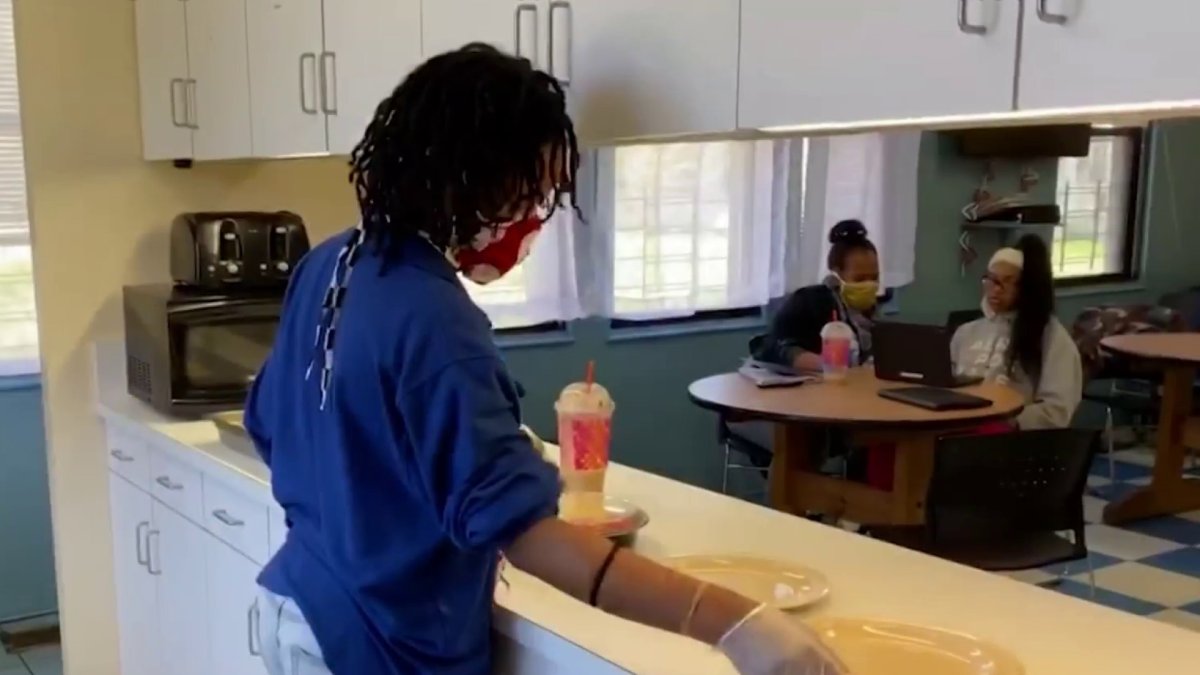
At least one nonprofit is doing more to make sure their frontline workers are getting paid for their extra work. Melissa Russo
The de Blasio administration has committed to reimburse nonprofits for new costs related to the COVID-19 pandemic, NBC New York has learned. New expenditures are expected to include boosting pay for workers on the frontlines of the crisis.
Human service providers with New York City contracts have been lobbying for enhanced pay in recent weeks, specifically to retain low-wage employees caring for coronavirus patients in residential settings, such as group foster homes and treatment centers for children. The decision comes as the city contemplates billions of dollars in budget cuts because of the economic impact of the coronavirus.
“The City really stepped up on this and we greatly appreciate it,” said Jim Purcell of the Council of Family and Child Caring Agencies, which advocates on behalf of non profits serving high risk families and children. According to Purcell, the news, delivered by New York City officials on a Saturday morning conference call, reflected a welcome shift in position.
According to several sources on the call, ACS Commissioner David Hansell informed agencies they had “received additional authorization from the Office of Management and Budget to provide support for emergency needs during the pandemic.”
In recent days, several nonprofit executives expressed concern to NBC New York that city budget officials had denied their requests for “hazard pay” as they struggled to keep anxious workers on the job in residential settings throughout the city. These include homes where children are treated for trauma and mental illness and programs that shelter runaway teens and juvenile offenders.
City officials familiar with the discussions say it was a mistake to request “hazard pay” which is not reimbursable by FEMA and raises the specter of liability for employers. Instead, the New York City has now asked each agency to develop a new coronavirus-related residential response and staffing plan, which would potentially be reimbursable by the feds.
In a statement, Laura Feyer, a spokeswoman for Mayor Bill de Blasio said, “Unfortunately, federal emergency funding currently doesn’t support 'hazard pay'. However, we understand their concern and have given the non profits access to funds that will cover their Covid-related costs.”
News
City Hall did not offer a cost estimate of new expenditures by nonprofits.
“Our workers are making harrowing personal choices every day,” said Ronald Richter, executive director of the non-profit JCCA. "This move by City Hall acknowledges the critical work these staff are doing for children who need their care, now more than ever."
Some residential programs have already dipped into their own reserves to pay double-time for workers caring for children in isolation with COVID-19. Some of these workers earn as little as $15.75 or $16 per hour, according to nonprofit sources. Residential programs describe setting up separate tents where 24-hour care is provided for sick children. But not all nonprofits have the resources to incentivize their workers with bigger paychecks.
One nonprofit source said, “Asking us to work with kids who test positive or are infected, with very few if any masks or gloves for minimum wage salaries, is really not possible for long without government support.”
City Hall insiders say the nonprofit programs have been a priority from the beginning of this crisis. They say the de Blasio administration has worked to set up weekly meetings with nonprofit service providers, meet their PPE needs, cut through red tape, push out hundreds of millions of dollars in funding and designate them as essential workers.
The Mayor’s spokeswoman added, “We value the City’s human service providers and appreciate that their work now involves additional risk.”